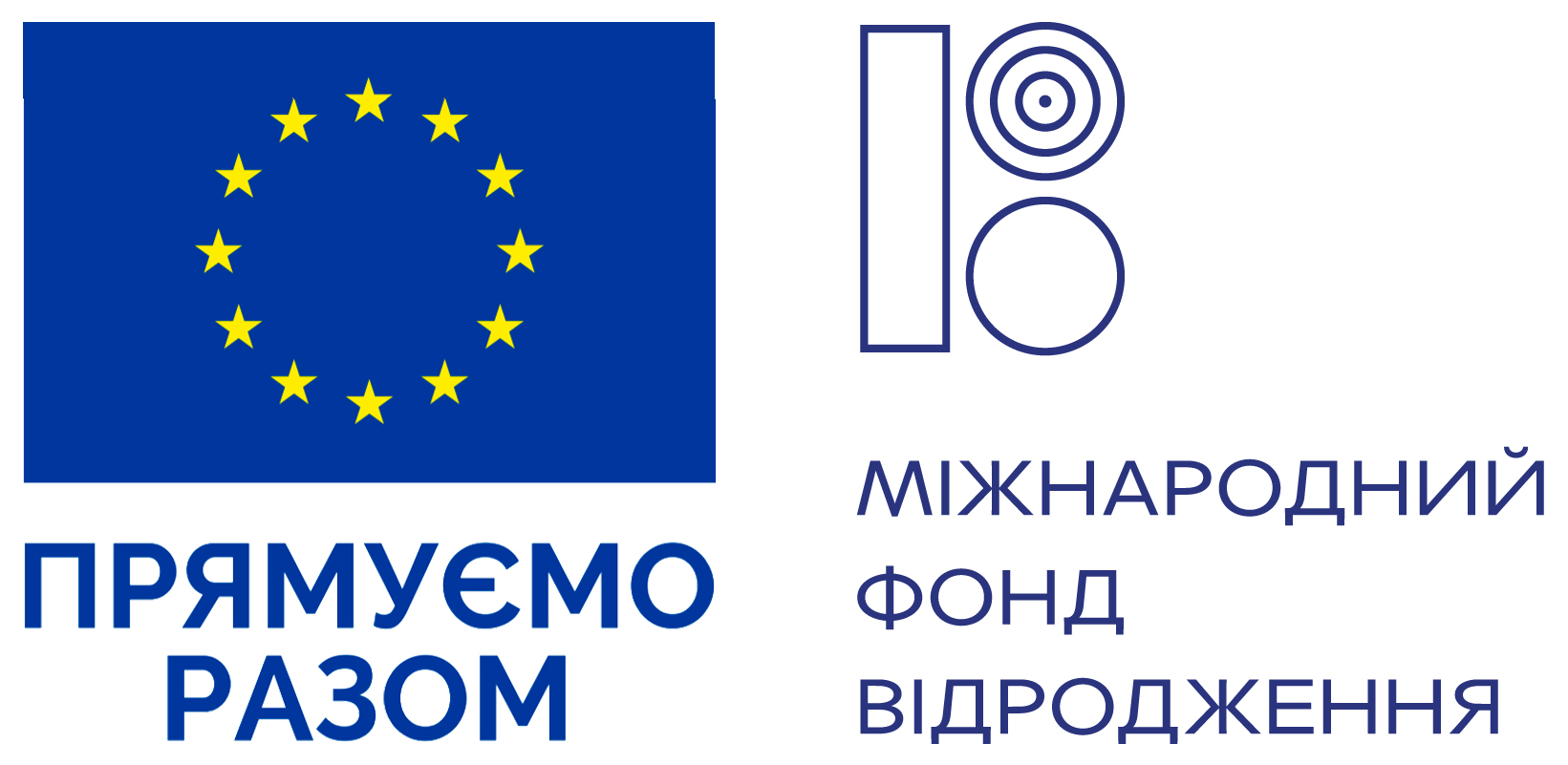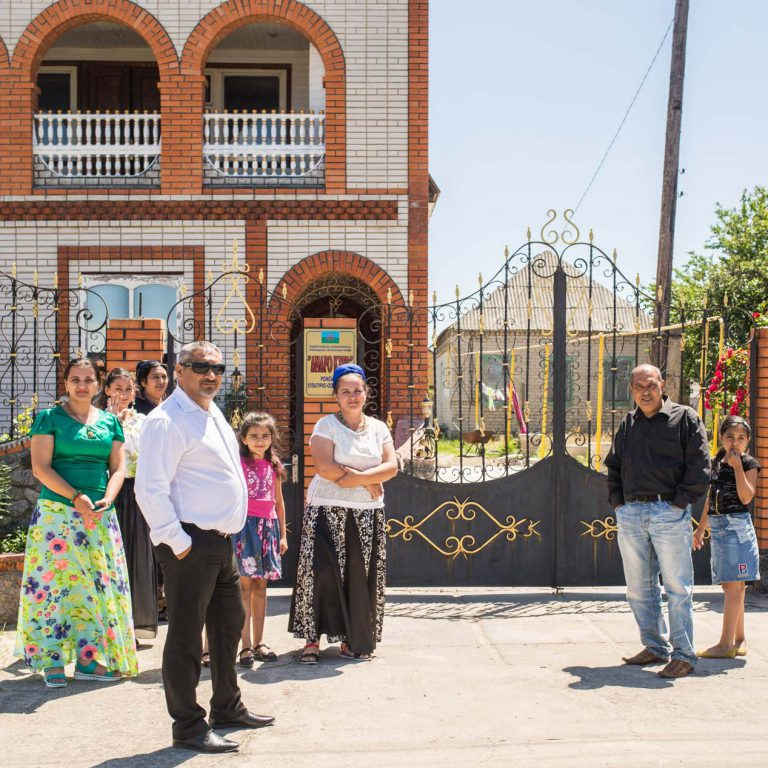When thinking of the Roma, our imagination often draws nomads who stop for some time somewhere on the outskirts of the town. However, this image can be dismissed by active community organizations of the settled Roma who cherish their traditions, living in large families in one spot for generations.
For instance, the family of Kertulai Ogly form Pavlohrad lives in such a way. It is an industrial town in Zaporizzhia Region, which is the centre of coal basin of the Western Donbass. In Soviet times, tech-heavy military products were manufactured here, and concentrating factory launched. Nowadays, however, rocket fuel is being disposed of here, and the town remains a coal mining.
Over 40 years now, Kertulai Ogly has been living in Pavlohrad. A sixth year running, he is the head of the Roma community organization, Amaro Kher, which takes care of the local Roma.
Today, the number of the Roma in Pavlohrad exceeds a thousand people. They live primarily in their private houses, in close neighbourhood. No one here lives in spontaneous, temporary settlements in the same street, as the majority has settled now – one got married another one his own house.

Ethnic minorities in any country tend to preserve some kind of autonomy and sometimes they may even avoid society, building an isolated community. There are a few causes to it: cultural specifics, traditional values, and way of life, which often differ considerably from what is habitual in the territory where this community lives. To be closed is always easier – you deal with those you know, where everything is familiar.
The problems, however, when they occur, are often hard to solve by efforts of just one single ethnic community. So, even though the state authorities have no credibility among the representatives of this community,eventually people address them for assistance.

In Ukraine, there are over 40 ethnic minority associations, currently residing on the territory of the country. Different types of the Roma organizations belong to these associations as well. The officially registered and the most active are the following: in Kherson (KETANE), Odessa (The Roma Center of Human Rights Advocacy), Mukachevo (ROMA), Cherkassy (Romani Rota), Zhytomyr (Romano Kham), and others.
After 8 April 1971, when the first World Congress took place in London, during which the International Romani Union was established, the Roma from all over the world began to unite in such communities. These days, the Roma from 42 countries of Europe, Asia, Northern Africa, Southern and Northern America, and Australia belong to this organization. In Europe alone, the number of the Roma population ranges between 12 million people.

Amaro Kher
The establishment of the Amaro Kher community organization, which in the translation from Romani means “our home”, has become a natural step in the development of the Romani community in Pavlohrad. On the meeting, the head, who the community trusts, was selected – Kertulai Ogly. His wife Rymma recalls that it was the Ukrainians who suggested the idea to create an organization:
— This idea came up spontaneously. There is a journalist in the city – Nikolaenko. He is an old man, already retired. So he came to us and suggested such an idea – to create an organization of the Roma and to shape a cultural course. We got acquainted, discussed it and in such a way the organization emerged.
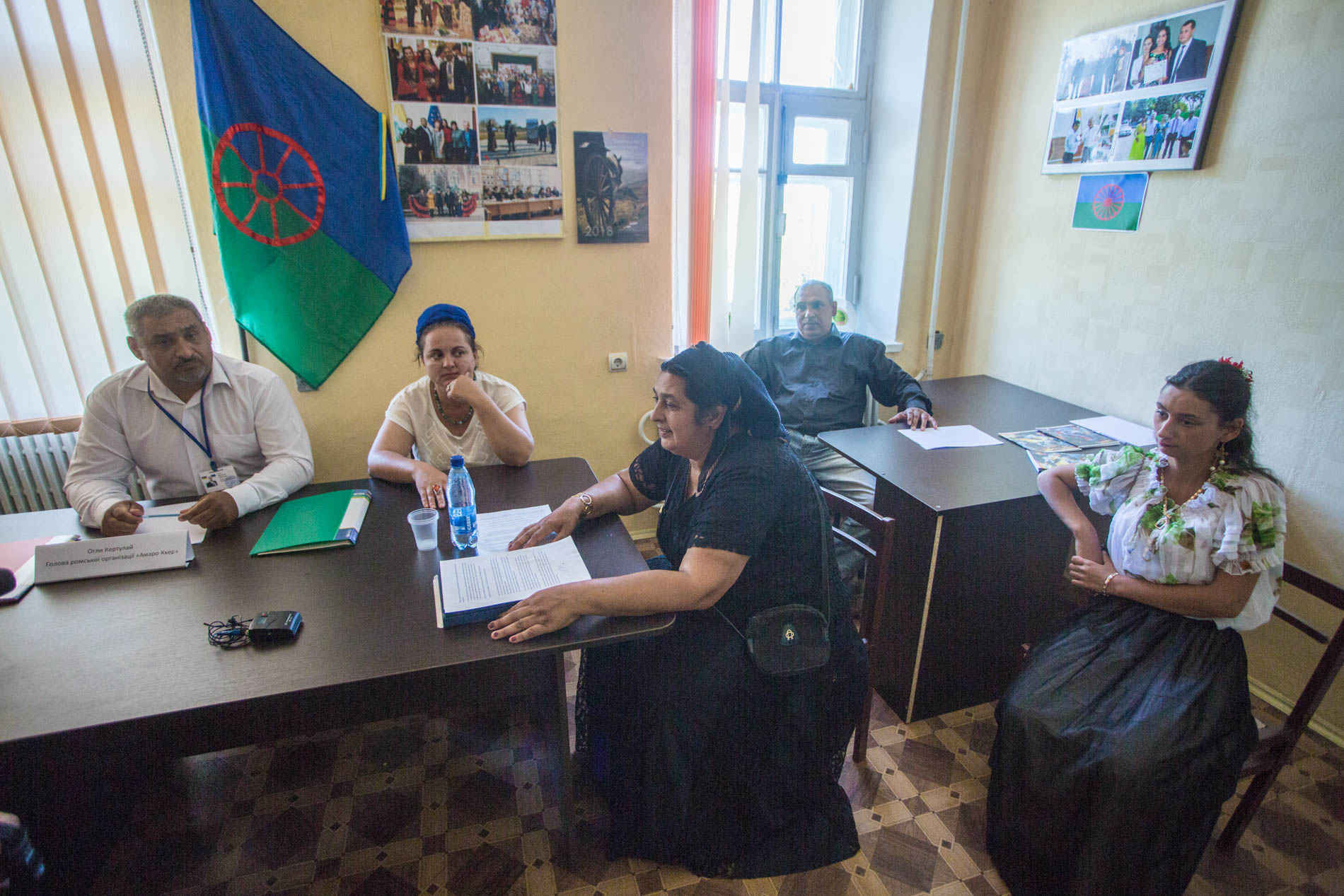
It was in 2012. In the meantime, on 8th of April, for the first time together the Roma of Pavlohrad were celebrating the International Day of the Roma. Now, the community got used to annual celebrations, started to show more interest to its ethnic culture, to seek communication and learn to be literate. The children of the community go to school more often now, while adults diligently attend collective events. Rymma insists that the organization is not being closed:
— The organization does everything good for our own Roma people and also we communicate a lot with the Ukrainians. We are not focused on us alone.
To make the community function, it is important to remember our own traditions, says Kertulai Ogly. As ethnic minority, which actively interacts to society, is very likely to become assimilated with its cultural legacy forgotten:
— Children come, they learn how to dance and listen to Romani stories. Nowadays, many men got married with Ukrainian women, so we should stay united and help in order that they learn the language and adhere to our traditions. In such a way we help, teach, and tell our history.

Amaro Kher actively cooperated with the town. Three years ago in Pavlohrad, assisted by local authorities, there were a monument raised – to the Roma who had died in the World War II. Later, the ethnic minority joined the project “The town with your own hands”, as a part of which they enriched the territory around the memorial, having made a park zone there.
The town also assisted in providing the premises for the community organization, which now consists of approximately 60 people and through mutual activity connects all local Roma.
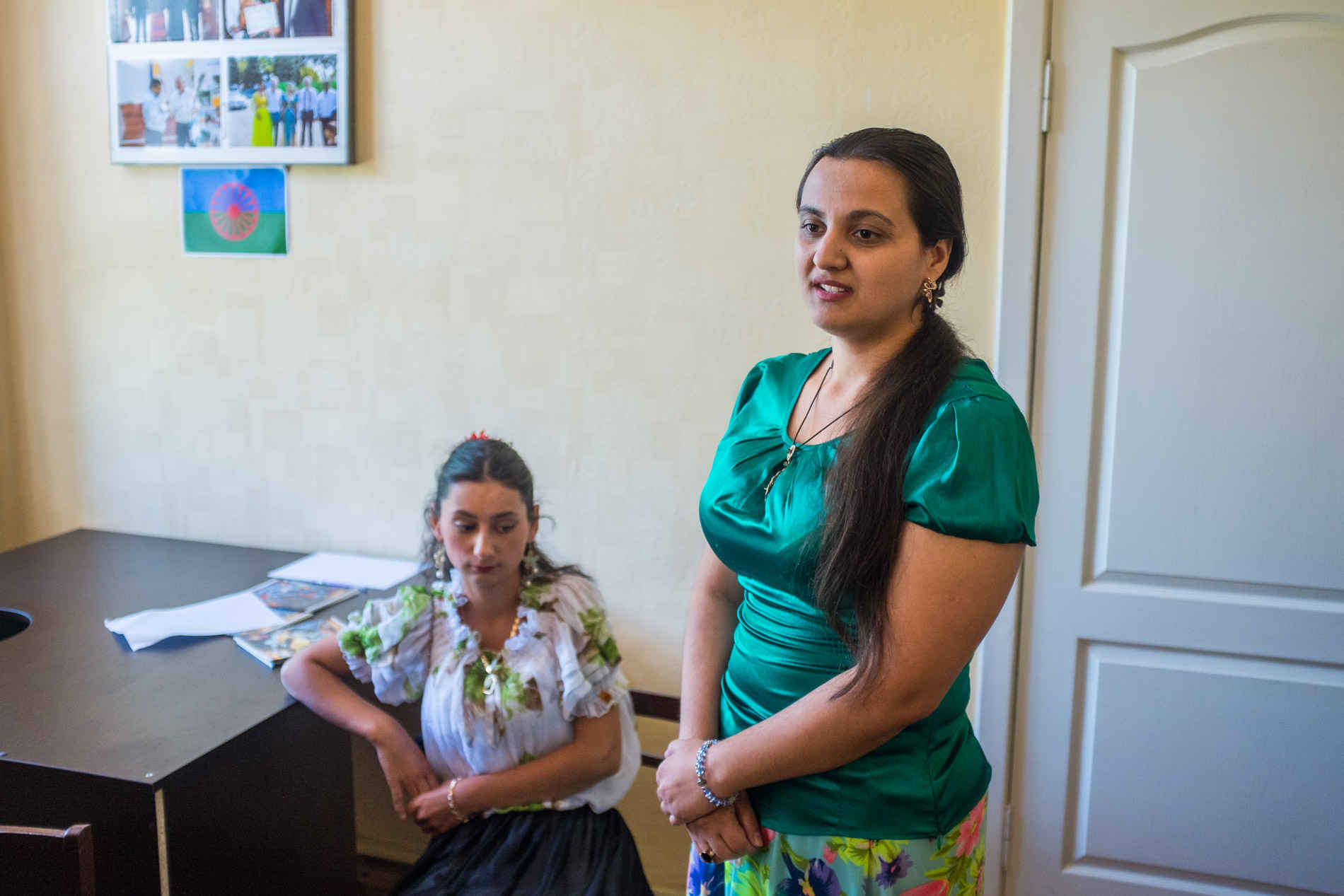
Oksana Salavatova, Kertulay Ogly’s daughter, tells that there were considerable changes, indeed, since the organization emerged:
— We participate in the local council, come to the meetings as an ethnic Roma organization, we get invited there. We cooperate in such way – it happened so that the town needs us. You know, somewhere something happened connected with the Roma, even if the troubles are small – someone had a fight, for instance – so we solve those problems very often. We propose it to consideration of our organization. And if the problem is bigger, we get together with the local authorities and solve it in common. If something happens anywhere, we are informed right ahead.
Such cooperation has positive influence on the image of the ethnic minority in town, denotes Rymma:
— I don’t know how it goes in other towns but here the Roma are respected. I can’t speak for the country in whole but in our town it is so. Our mayor treats us well. We have good relationships with people here.
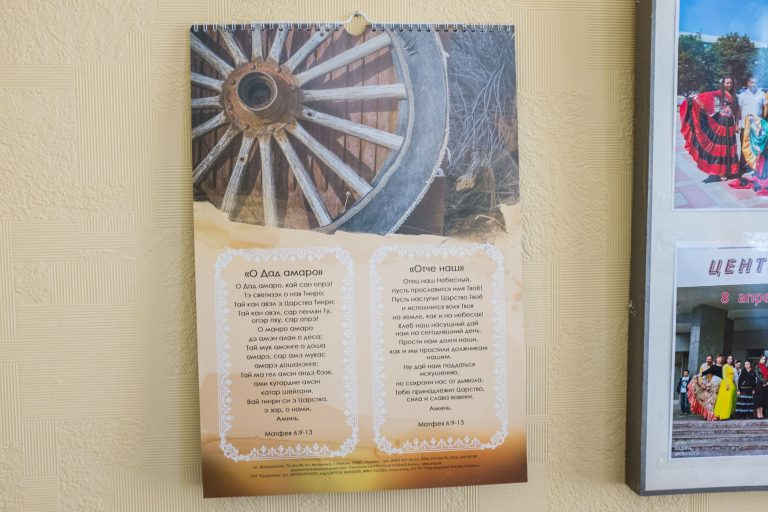
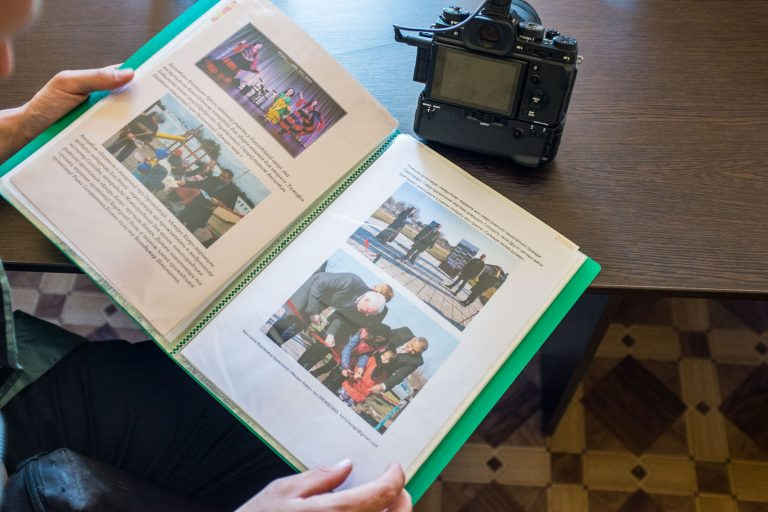
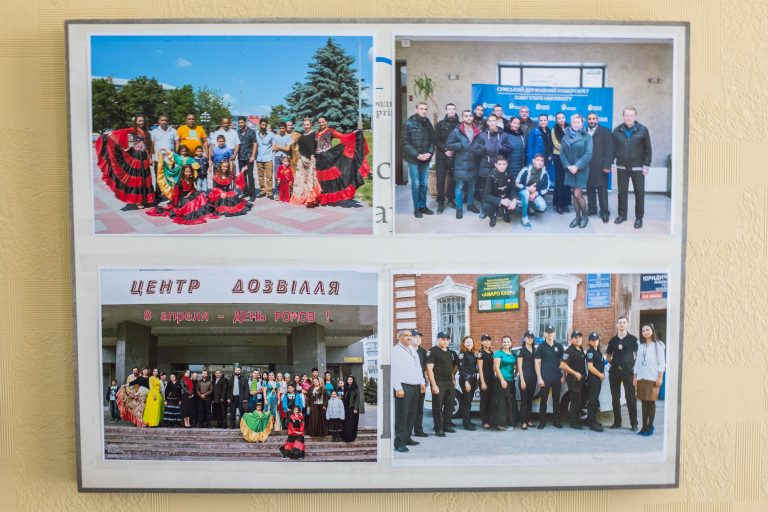
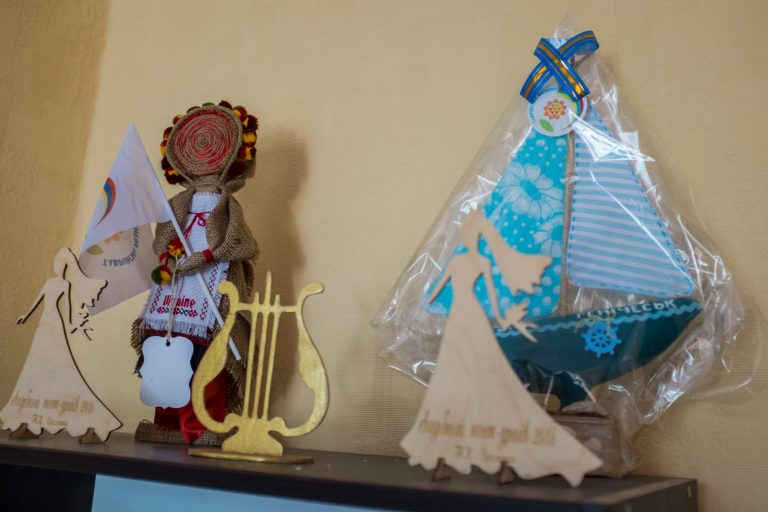
slideshow
Such cooperation is nothing different from the cooperation between any other active community and local authorities. Pavlohrad Roma take part in local events, give performances both in Pavlohrad, introducing their native culture to people, as well as in other Ukrainian cities. On behalf of the town they are members of festivals, conferences etc.
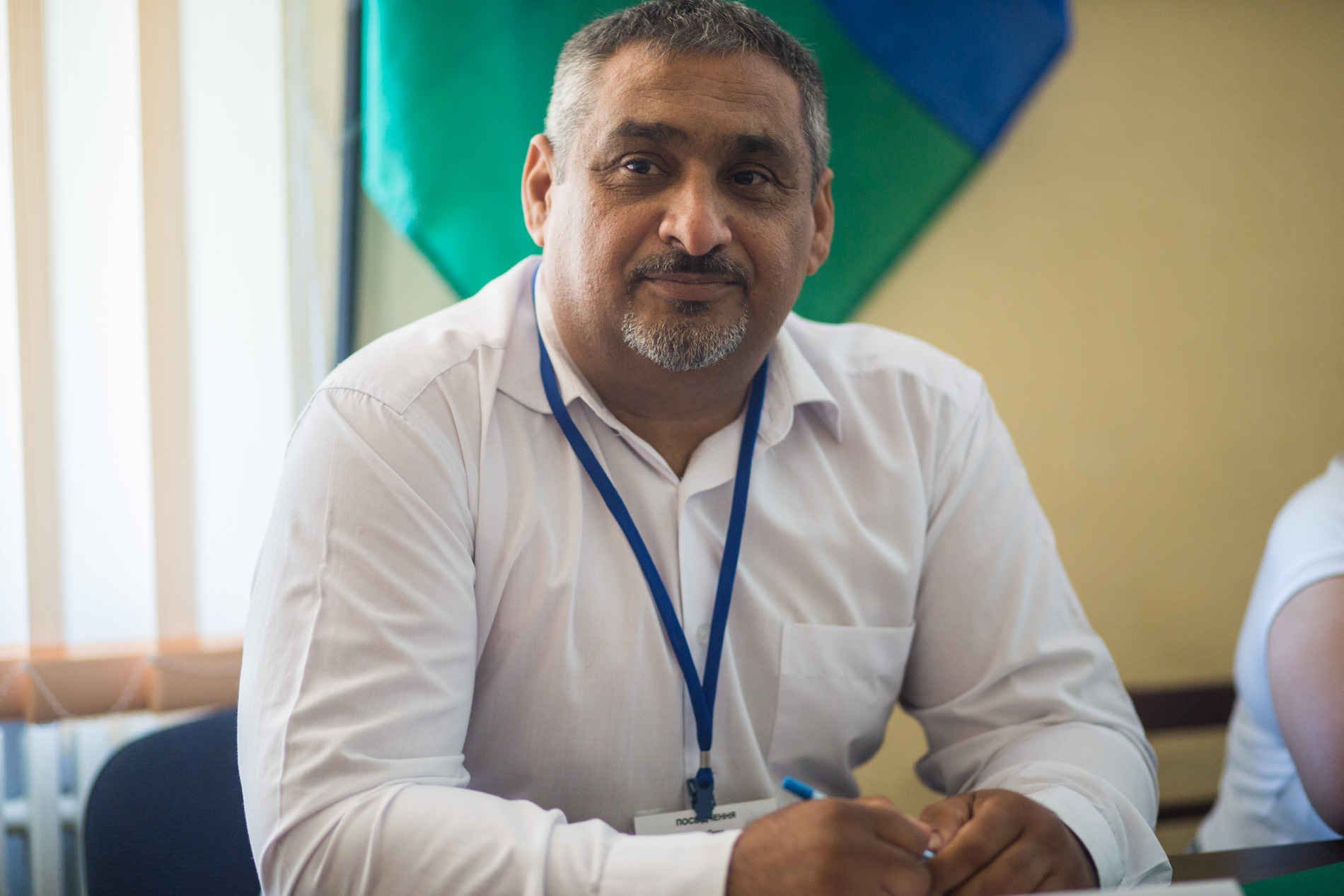
Kertulai Ogly tells how the community lives:
— They live, work, and earn their daily bread. The most important is that they don’t steal; they all behave well. This is what we exist for – our organization – so that they (local Roma – editor) knew, feared and, if needed, came to us. We solve their problems. If there is any need, we will help or give a piece of advice.
Kertulai Ogly’s family denotes that the organization has influenced the education level of people who belong to this ethnic group in Pavlohrad. Before, Romani children didn’t attend schools here/ According to Rymma’s words, the situation has completely changed now:
— They have become more literate now. They strive to finish institutes and colleges. They enroll there to further be part of a literate society. As literacy means work. You become a person as everyone else. You want to blend into a crowd and be like other people, nothing like: “Look, a gypsy goes!”.
Kertulai Ogly adds up that in Pavlohrad community they understand the importance of education:
— As they know that attending school means work and better life in future.
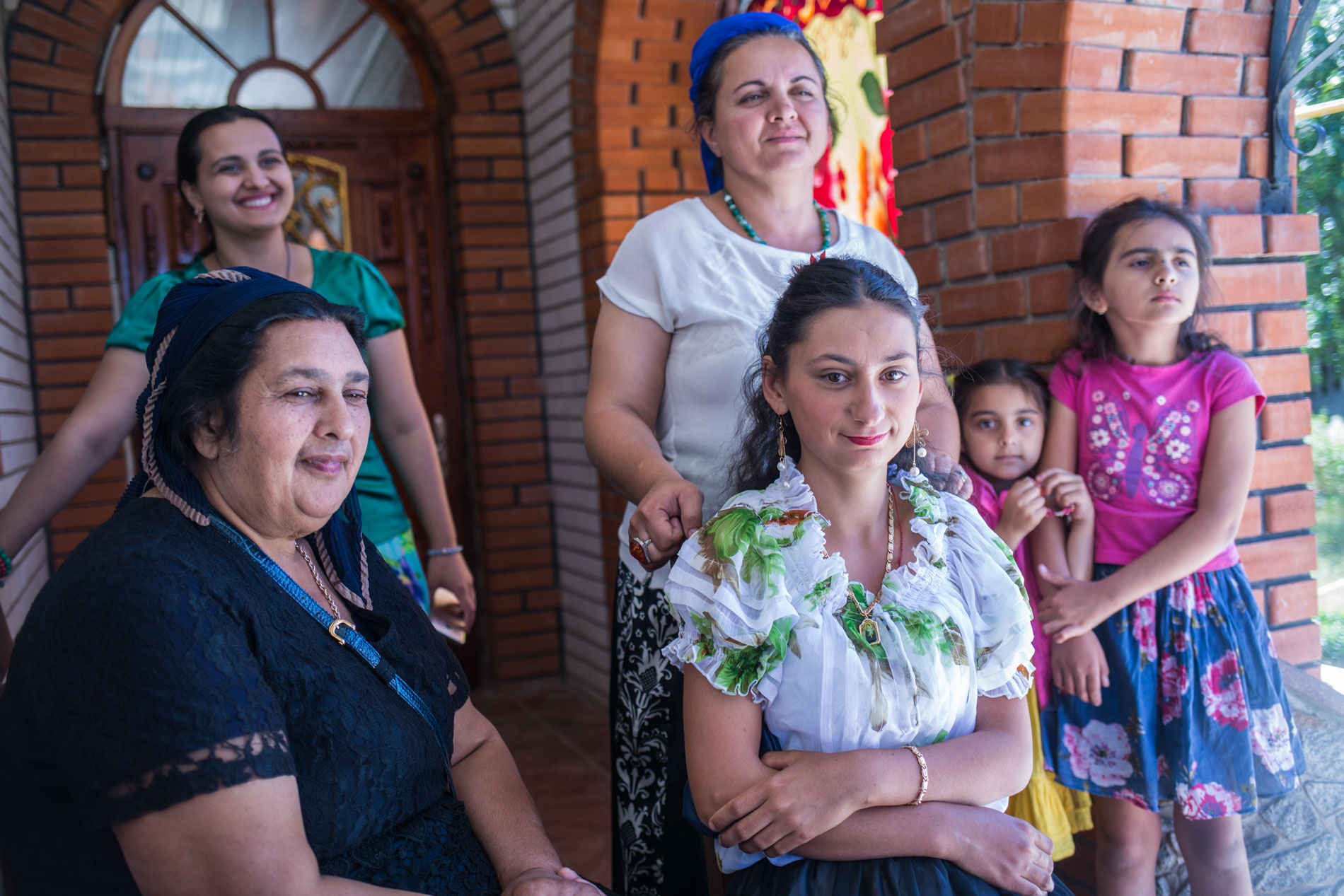
The history of Pavlohrad Roma
Amaro Kher members think of Pavlohrad as their home:
— Pavlohrad is my home. No one bothers us here. The whole Pavlohrad is like a family – everyone knows each other.
Local Roma claim that there is no problem of cooperation with other communities here in Pavlohrad compared to other cities, such as Kyiv or Lviv.Here, everyone knows each other, and of the town they think as of something dear, of where you want to return:
— Well, you go abroad, you leave for Kyiv, but as the story goes – no matter where you are, there is no place like home. Here, everything is dear to your heart. People you know, relatives, and everything is your own.
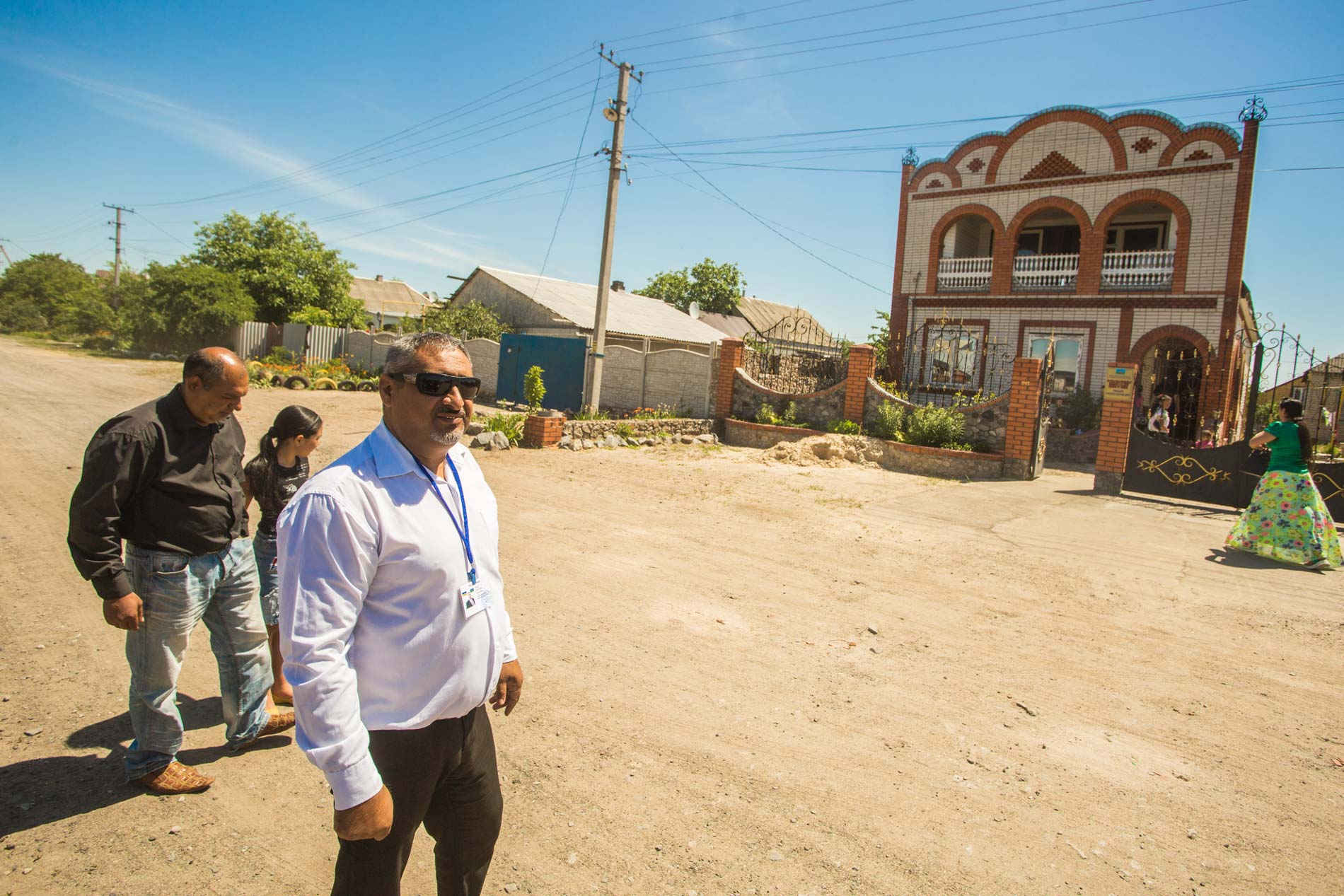
As regards to quantity, the community keeps changing, says Kеrtulai Ogly:
— There were many people until these days, till the war. About 2500 Roma lived here. Now, a lot have left, and indeed you wouldn’t know how many.
In 2014, the nomadic Roma came to Pavlohrad, as well as those who left Donbass. Their number in town was very considerable then. Amaro Kher helped them as we could – by giving food or clothes. Currently, there are just a few families of the migrant Roma in town. Others, however, either went back, as it got easier at home, or elsewhere.
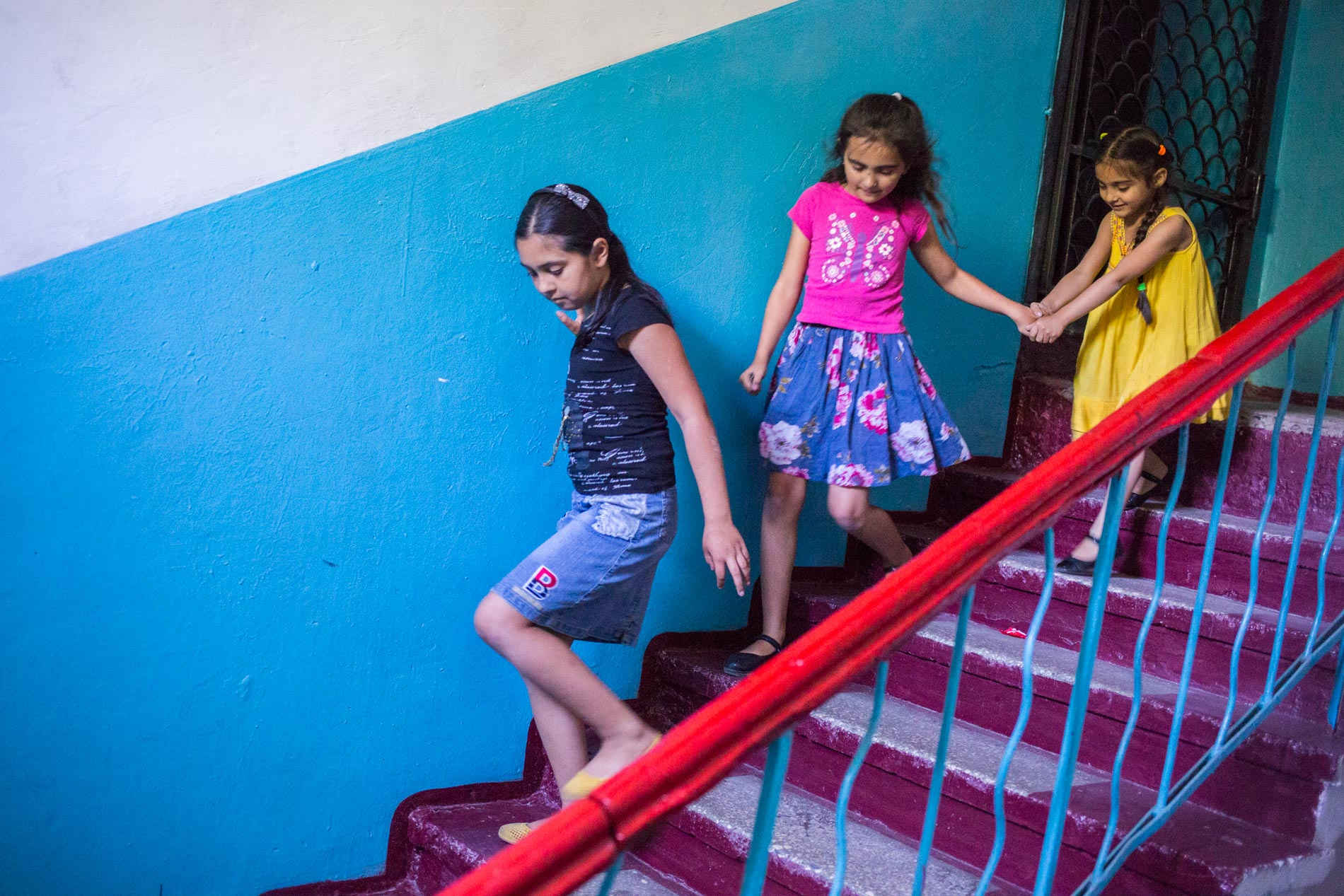
Historically, the Roma settled in Pavlohrad right after the World War II. As a result of genocide made by the Nazis in 1933-1945, in the territory of Ukraine and Russia alone 300 thousand Roma were destroyed. The victims of the Nazi genocide among this ethnic minority were, according to various estimates, up to 500 thousand people from various countries – shot to death, deported, and later subjected to the repressions of the Soviet regime.
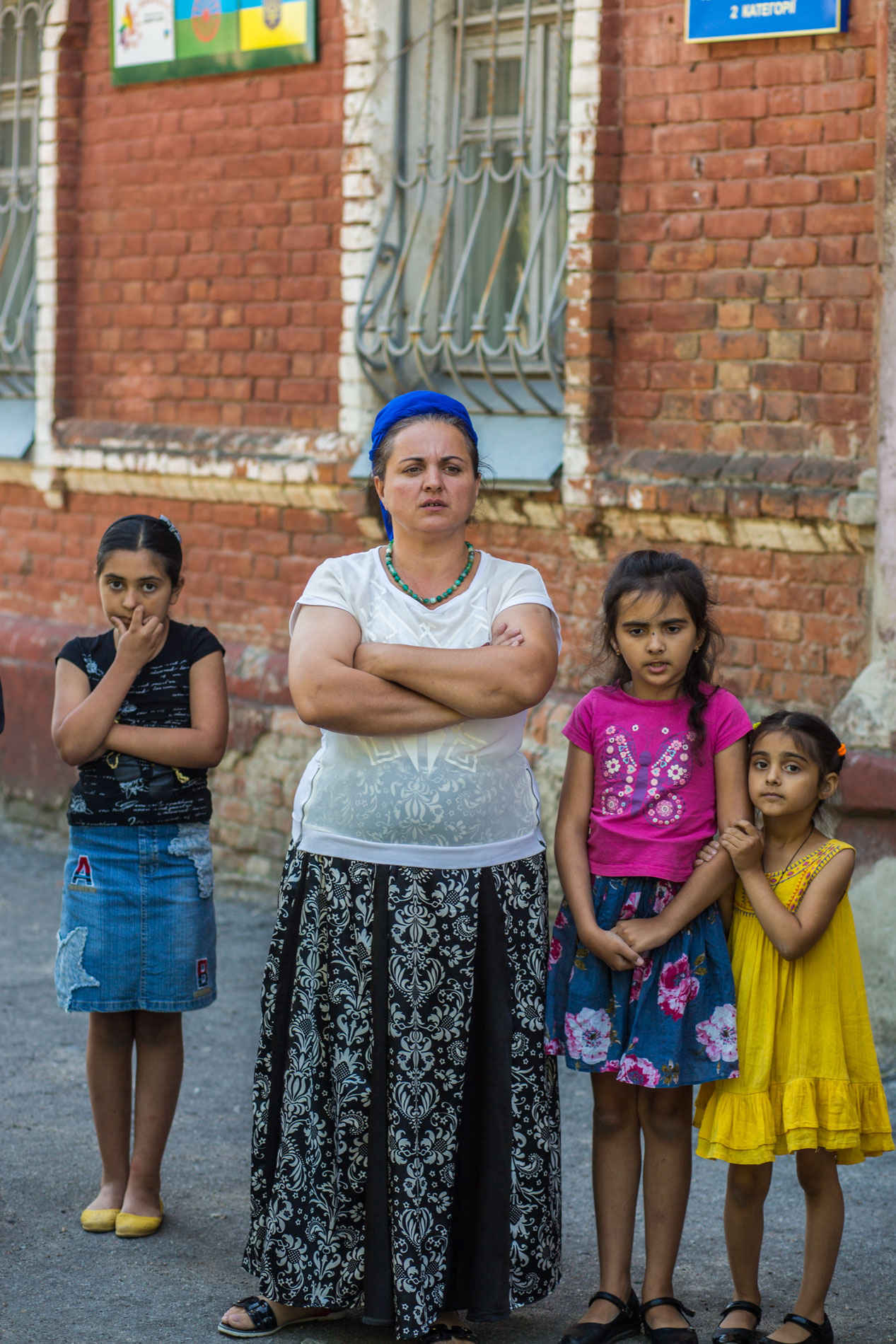
The representatives of this ethnos, who stayed in Pavlohrad, are remembered since 1956. They, in turn, started to develop the community, preserve traditions, and support each other.
The community members have pretty strong connection: they understand each other, respect and love, pay visits one to another, and party at the weddings.
Preservation of the tradition
In Pavlohrad, the Roma follow traditions in different ways. This is due to the fact that the older generation, commonly found to preserve customs the most, passes away. Instead, the ethnic minority representatives marry locals, and since there is no mosque in Pavlohrad – and the church in return is – the community adults tend to be baptized more often. There they even baptize children.
Pavlohrad Roma are the descendants of the Crimean Roma, therefore the Muslim beliefs are common to them. It is emphasized by the language they speak, too.
There is a great deal of the Romani dialects in Ukraine. For example, in Pavlohrad they don’t understand the language of Zakarpattia Roma at all – as they are different. Here prevail mostly Crimean words, similar to Muslim, though some inclusions from Christian Romani language are also present. On Zakarpattia, instead, they speak the language of the Christian Roma, more similar to Hungarian. Oksana points out:
— We have a lot of Romani dialects. They all are very different. Here, actually, we don’t understand the Roma from the West (of Ukraine – author).
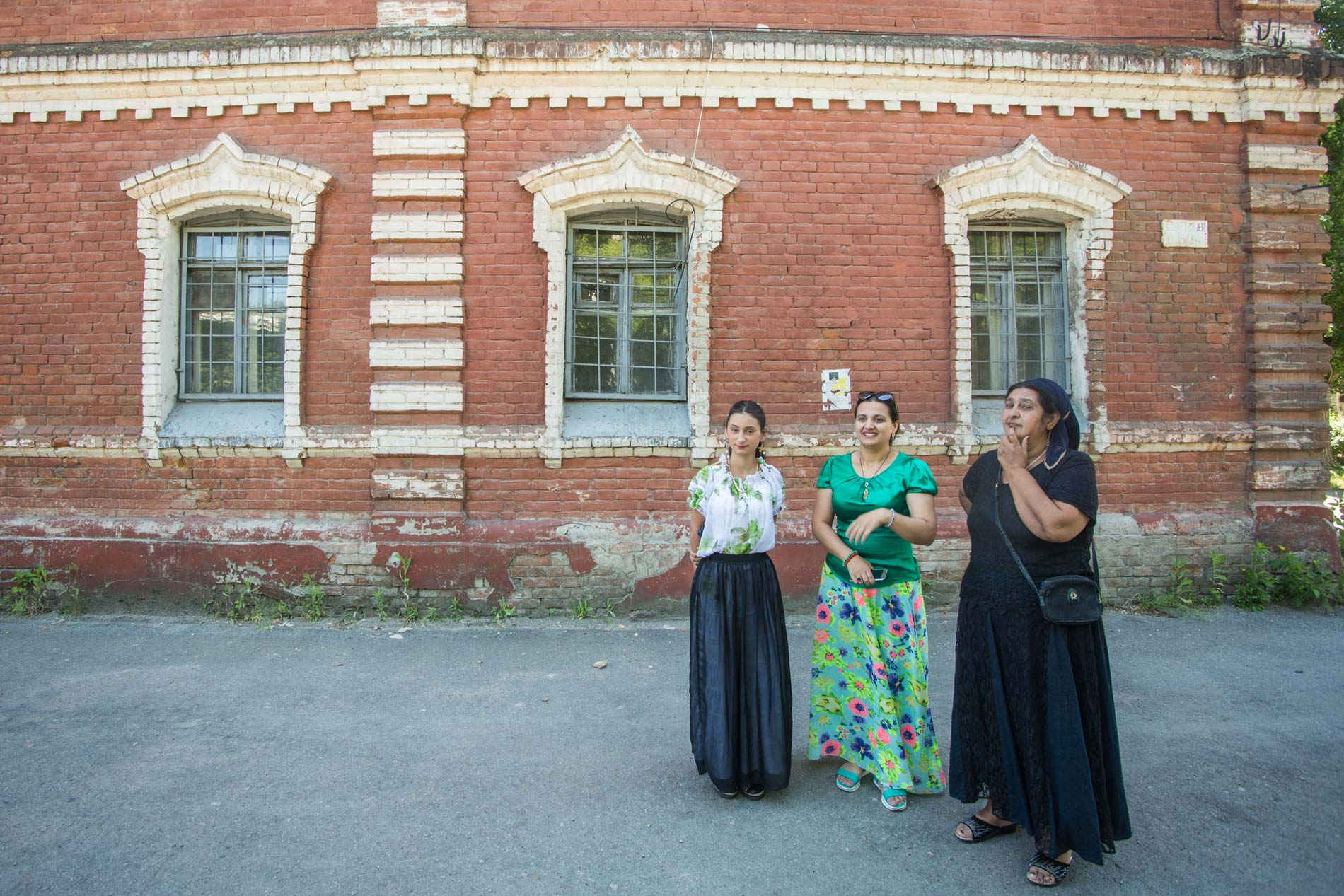
That’s understandable that the language and customs are dynamic things, therefore they change, never remain still. It concerns the clothes of local women of this community, too, Rymma tells us:
— There are Christians who don’t wear head kerchiefs and long skirts. They can make a hairdo and look more like the Ukrainians, while we cannot be misrecognized – a long skirt, a head kerchief – this is a gypsy goes. However, women can also dress up the same as others – because it’s convenient.
Generations of the Roma preserve the customs connected with clairvoyance gift. That’s how Oksana explains this tradition:
— What are the Roma traditions? It’s magic! It is what it is. It’s not a deception, it’s the truth: clairvoyance, fortune-tellers, witches –all is true. Even I have inherited it from my grandma.
Oksana tells us that these abilities must be learnt to control – as someone may even not know he has them. She felt her gift yet at 10 years old. For the first time then, she described his future family to her brother – a wife and kids – and three years later this prophecy fulfilled.
Oksana confides that there are too many jealousy and curses in the world now – people envy others when they are merry and happy, or simply purchased something new. Nevertheless, she insists that God be the judge on that, so she doesn’t do any curses:
— If a person earned it, if he offended anyone, he will then be punished anyway, without any magic.

Pavlograd Roma, specifically Kertulai Ogly’s family, support strong relations with the Roma all over Ukraine and they realize that all Roma, either nomads or settled ones, bearers of either Christian or Muslim traditions, or simply the natives of various language dialects, are often generalized.
— If a Ukrainian did something to someone of another ethnicity, it will not be so evident, you see? If ours did something wrong, the attention will be huge.
However, it doesn’t matter what ethnicity a person belongs to, says Rymma:
— It depends on the person, how he carries himself in society. So do we live.
supported by
